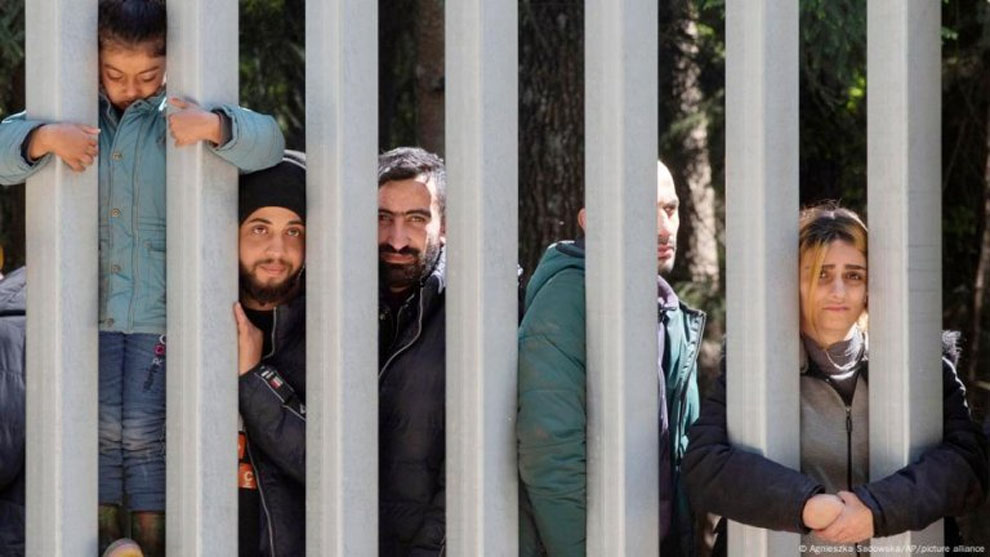International
Ferrari begins accepting crypto as payment for its cars

Ferrari begins accepting crypto as payment for its cars
Ferrari (RACE.MI) has started to accept payment in cryptocurrency for its luxury sports cars in the U.S. and will extend the scheme to Europe following requests from its wealthy customers, its marketing and commercial chief told Reuters.
The vast majority of blue-chip companies have steered clear of crypto as the volatility of bitcoin and other tokens renders them impractical for commerce. Patchy regulation and high energy usage have also prevented the spread of crypto as a means of payment.
These include electric carmaker Tesla (TSLA.O), which in 2021 began to accept payment in bitcoin, the biggest crypto coin, before CEO Elon Musk halted it because of environmental concerns.
Ferrari’s Chief Marketing and Commercial Officer Enrico Galliera told that Reuters cryptocurrencies had made efforts to reduce their carbon footprint through the introduction of new software and a larger use of renewable sources.
“Our target to reach for carbon neutrality by 2030 along our whole value chain is absolutely confirmed,” he said in an interview.
Ferrari said the decision came in response to requests from the market and dealers as many of its clients have invested in crypto.
“Some are young investors who have built their fortunes around cryptocurrencies,” he said. “Some others are more traditional investors, who want to diversify their portfolios.”
READ ALSO:
-
Tinubu, Sultan, Bayero, Oloyede, 11 other Nigerians listed among 500 world influential Muslims
-
Euro 2024: Kylian Mbappe scores twice as France beat Netherlands to seal qualification
-
Insecurity: NSCDC deploys undercover agents to schools
While some cryptocurrencies, such as the second-largest, ether , have improved their energy efficiency, bitcoin still attracts criticism for its energy-intensive mining.
Ferrari shipped more than 1,800 cars to its Americas region, which includes the U.S., in the first half of this year.
Galliera did not say how many cars Ferrari expected to sell through crypto. He said the company’s order portfolio was strong and fully booked well into 2025, but the company wanted to test this expanding universe.
“This will help us connect to people who are not necessarily our clients but might afford a Ferrari,” he said.
The Italian company, which sold 13,200 cars in 2022, with prices starting at over 200,000 euros ($211,000) and going up to 2 million euros, plans to extend the crypto scheme to Europe by the first quarter of next year and then to other regions where crypto is legally accepted.
Europe, the Middle East and Africa (EMEA) is Ferrari’s largest region, accounting for 46% of its total car shipments in the first half of this year.
“Interest is the same in the U.S. and Europe, we don’t see huge differences,” Galliera said.
Countries where cryptocurrencies are restricted include China.
READ ALSO:
- Ondo Assembly halts impeachment process against Aiyedatiwa
-
Fake lawyer who won 26 cases against trained lawyers arrested
-
Suspected herdsmen hijack fully loaded Benue Links bus, butcher passengers
Ferrari has turned to one of the biggest cryptocurrency payment processors, BitPay, for the initial phase in the U.S., and will allow transactions in bitcoin, ether and USDC, one of the largest so-called stablecoins. Ferrari might use other payment processors in different regions.
“Prices will not change, no fees, no surcharges if you pay through cryptocurrencies,” Galliera said.
Bitpay will immediately turn cryptocurrency payments into traditional currency on behalf of Ferrari’s dealers, so they are protected from price swings.
“This was one of our main goals: avoiding, both our dealers and us, to directly handle cryptocurrencies and being shielded from their wide fluctuations,” Galliera said.
As the payment processor, BitPay will ensure that the virtual currencies come from legitimate sources and not derived from criminal activity or to be used to launder the proceeds of crime or evade tax.
Ferrari’s marketing and commercial chief said that the majority of its U.S. dealers have already signed up, or are about to agree, to the scheme
“I am confident others will join soon,” Galliera said.
(REUTERS)
International
$100m coin collection buried for decades to be auctioned

$100m coin collection buried for decades to be auctioned
A coin collection, much of which remained buried underground for over 50 years, is expected to surpass $100 million at auction, according to experts.
Named the Traveller Collection, this extraordinary assemblage is believed to be the most valuable coin collection ever brought to auction.
The coins will be sold gradually over the next three years, with the first auction set for May 20.
Beyond its immense value, the collection’s origins make for a fascinating tale.
Spanning over 100 territories and encompassing coins from ancient times to the modern era, the collection is being auctioned by Numismatica Ars Classica.
What sets it apart is that most of the coins remained hidden underground for half a century before resurfacing.
According to a press release shared with CNN, the anonymous collector behind the collection began acquiring gold coins after the Wall Street Crash of 1929.
Over time, he developed “a taste for coins with great historical interest, beauty and rarity” and eventually amassed approximately 15,000 coins.
During the 1930s, he and his wife traveled extensively across the Americas and Europe, acquiring rare and historically significant coins while meticulously documenting their purchases.
READ ALSO:
- EFCC re-arraigns son of ex-PDP chairman for alleged N2.2bn oil subsidy fraud
- Group says Natasha’s recall will deepen democracy
- We welcome Gov Makinde’s U-turn on Shari’ah panel – MURIC
Despite settling in Europe at a time when Hitler’s Nazi party loomed over the continent, the collector sensed the impending danger. In response, he carefully packed the coins into cigar boxes, which were then placed inside aluminum containers and buried underground, where they remained undisturbed for five decades.
Among the collection is a 50 Toman coin, part of an “exceedingly rare” set minted in Tehran and Isfahan during the late 18th and early 19th centuries.
International
AI will replace doctors, teachers, others in 10 years – Bill Gates

AI will replace doctors, teachers, others in 10 years – Bill Gates
Bill Gates, a co-founder of Microsoft, has claimed that improvements in artificial intelligence (AI) over the next decade may render humans superfluous for the majority of work.
In a recent interview with comedian Jimmy Fallon on NBC’s The Tonight Show in February, the billionaire philanthropist discussed how AI may take over many facets of life and business.
Gates remarked that expertise is currently “rare”, emphasising the continuous reliance on human specialists in industries such as medicine and education.
For example, we continue to rely on highly trained individuals, such as “a great doctor” or “a great teacher”, whose knowledge cannot be simply replaced by AI.
However, “with AI, over the next decade, that will become free, commonplace — great medical advice, great tutoring,” Gates said.
READ ALSO:
- Senate seeks FG’s immediate intervention to slash data prices
- Reno Omokri: Nigeria gives more opportunities than US, Britain, Canada
- Driver remanded for causing Osun varsity students’ death
In other words, Gates believes that the world is entering a new era of “free intelligence”, as he described in a recent interview with Harvard University professor and happiness specialist Arthur Brooks.
According to Gates, this transition will result in rapid breakthroughs in AI-powered technology, making them more accessible and affecting almost every part of our lives.
These breakthroughs will vary from more effective treatments and diagnoses to widely available AI instructors and virtual assistants.
“It’s very profound and even a little bit scary — because it’s happening very quickly, and there is no upper bound,” Gates told Brooks.
The discussion of how humans will fit into an AI-powered future continues.
Some analysts suggest that artificial intelligence will improve human productivity rather than completely replacing labour, hence driving economic growth and creating new jobs.
However, Microsoft AI CEO Mustafa Suleyman cautions that technological improvements in the coming years will disrupt the nature of most occupations across nearly all industries, potentially exerting a “hugely destabilising” influence on the workforce.
AI will replace doctors, teachers, others in 10 years – Bill Gates
International
Poland suspends migrants’ right to apply for asylum

Poland suspends migrants’ right to apply for asylum
Poland has temporarily suspended the right of migrants arriving in Poland via its border with Belarus to apply for asylum.
Prime Minister Donald Tusk announced it would be happening after the controversial bill, which will allow Polish authorities to suspend this right for up to 60 days at a time, was signed into law by President Andrzej Duda.
Tusk had said it would be adopted “without a moment’s delay” while Duda said the changes were needed to strengthen security on the country’s borders.
But the law has been criticized by rights groups including Human Rights Watch, which said the EU should take legal action against Poland if it was implemented.
The group urged the country’s parliament last month to reject the bill, saying it “flies in the face of Poland’s international and EU obligations” and could “effectively completely seal off the Poland-Belarus border, where Polish authorities already engage in unlawful and abusive pushbacks”.
READ ALSO:
- Trump slaps 25% tariffs on car imports to US
- Reps pass bill to strip Vice President, governors, deputies of immunity
- Businessman collapses in court during trial over $578,000 cash seizure
The government said previously the suspension would only be applied temporarily to people who pose a threat to state security, for example large groups of aggressive migrants trying to storm the border.
Exemptions will be made for unaccompanied minors, pregnant women, the elderly or unwell, anyone exposed to “real risk of serious harm” by being returned and citizens of countries accused of conducting the instrumentalization of migration – like Belarus
Tusk has dismissed criticism from human rights groups.
“Nobody is talking about violating human rights, the right to asylum, we are talking about not granting applications to people who illegally cross the border in groups organised by Lukashenko,” he said in October.
Since 2021, Poland, Lithuania, Latvia and Finland have seen a huge increase in the number of people crossing into their countries illegally from Belarus and Russia.
Polish authorities have sent thousands of troops and border guards to police its border with Belarus and built a 5.5-metre-high steel fence along 186 km of the frontier where at times several thousand migrants have been left stranded.
Rights groups estimate more than one hundred people have died on the borders between Belarus and Poland, Lithuania and Latvia since 2021.
EU eastern flank countries and the European Commission have accused the Belarusian and Russian authorities of weaponising migration to create a new route into the EU to destabilize the bloc.
Poland suspends migrants’ right to apply for asylum
BBC
-

 metro1 day ago
metro1 day agoRivers administrator Ibas fires Fubara’s political appointees
-

 metro1 day ago
metro1 day agoJUST-IN: Ex-Oyo gov Ajimobi’s first child Bisola dies At 42
-

 International2 days ago
International2 days agoCanada removes bonus ranking points for job offers in Express Entry system
-

 metro2 days ago
metro2 days agoHow ritualists, native doctor drugged, murdered underage sisters in PH – Police
-

 metro1 day ago
metro1 day agoFG declares public holidays for Eid-el-Fitr
-

 Sports2 days ago
Sports2 days agoNigeria’s Super Eagles falter in W’Cup qualifiers against Zimbabwe, S’Africa lead, Egypt, Morocco qualify
-

 metro2 days ago
metro2 days agoAkpabio has habit of abusing women, says Atiku
-

 Africa1 day ago
Africa1 day agoNiger coup leader sworn in as president for five years













